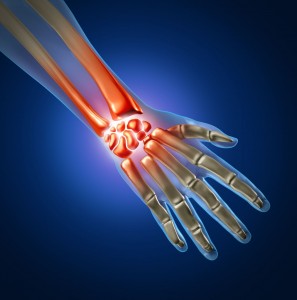Carpal tunnel syndrome is a condition that causes pain and numbness in the hand, affecting your ability to use it. Causes of carpal tunnel may include:
· Repetitive hand use. Repeating the same hand and wrist motions over a prolonged period of time may aggravate the tendons in the wrist, causing swelling that puts pressure on the nerve. This includes improper positioning and support of the hand/wrist during a prolonged activity — such as typing on a computer, texting, playing an instrument, or even playing video games.
· Health conditions. Diabetes, rheumatoid arthritis and thyroid gland imbalance are conditions also associated with carpal tunnel.
In addition, the traits of carpal tunnel can run in families – and hormonal changes during pregnancy may also cause swelling and symptoms.
Treatment
Left untreated, carpal tunnel syndrome can lead to irreversible nerve and muscle damage. Fortunately, permanent nerve damage can usually be avoided if you’re diagnosed and treated early. Among people with a clear diagnosis of carpal tunnel syndrome, treatment relieves most of the pain, tingling and numbness.
Non-invasive treatment options include:
· Avoiding prolonged repetitive motions, changing positions, and taking breaks from hand and wrist use may be helpful in relieving your symptoms.
· Physical and/or occupational therapy, including therapeutic ultrasound, stretching and range-of-motion exercises are also often recommended.
· Medicines such as nonsteroidal anti-inflammatory drugs may help to relieve pain and reduce inflammation. In some cases, oral corticosteroids or injections into the carpal tunnel may be recommended by your physician.
If none of these non-invasive treatment options help, surgery may be required.
Surgery
Your physician may recommend surgery if the condition has persisted for at least six months — and has limited your ability to function at work or in your activities of daily living. Surgery may also be recommended if there’s nerve damage or the risk of nerve damage.
Surgery for carpal tunnel boasts excellent long-term success rates. There are risks associated with carpal tunnel surgery, like any other surgery. But aside from general surgery risks (such as anesthesia side effects), there is a slight chance of nerve damage or infection.
If you suffer from the symptoms of carpal tunnel syndrome, it’s best to consult with your POSMC physician early on in order to determine the best course of action. With proper treatment, you stand a good chance at a full recovery! Make an appointment now!

